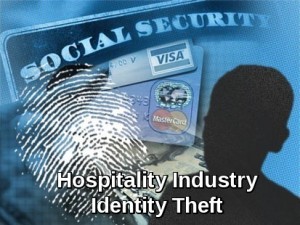“…Until a couple of years ago, courts would routinely dismiss lawsuits stemming from data breaches, such as the latest in South Carolina, unless the victims could show specific damages. Judges have since widened their  view and are awarding class-action status to lawsuits that can show actual damages or a real possibility of future damages…”
view and are awarding class-action status to lawsuits that can show actual damages or a real possibility of future damages…”
The payout for companies on the losing side of a class-action suit can be substantial. A recent survey of data breach litigation found the average settlement award of $2,500 per plaintiff, with mean attorney fees reaching $1.2 million, according to a study by Temple University Beasley School of Law.
How federal courts define the damages people suffer from data breaches is broadening dramatically, leaving unprepared companies at greater risk of big payouts in class-action lawsuits, lawyers from a prominent law firm say.
Jeffrey Vagle, a lawyer with Pepper Hamilton, described as a “sea change” judges’ thinking. “Courts are starting to pick up on the fact that the data that can get out there can cause serious harm, maybe not immediately, but sometime in the near future,” Vagle said.
Examples include a case in which a laptop containing unencrypted personal data of Starbucks employees was stolen. While there was no evidence that the data was misused, the Ninth Circuit Court ruled in 2010 that the risk alone was enough to warrant a lawsuit, Vagle and colleague Sharon Klein said in a Client Alert published on the law firm’s website.
Data breaches have become a fairly common occurrence among companies of all sizes. Last year, 174 million data records were loss in 855 separate incidents, according to a recent report from Verizon. A 2011 Ponemon Institute survey of 583 IT and IT security professionals in the U.S. found that 90 percent of the organizations they represented had suffered at least one data breach.
To lessen potential damages, Pepper Hamilton recommends beefing up technical and physical security wherever possible. While no technology is 100% hacker proof, courts tend to compare what a company has in place to what is considered best practices for businesses of the same size and in the same industry. Taking all reasonable steps to prevent data theft can lessen damages.
Also, information shouldn’t be linked to individuals, unless absolutely necessary, and a notification policy needs to be in place, so people affected by data breaches are warned as quickly as possible.
A bill pending in Congress would set a national standard for data breach notification, replacing the variety of state laws that exist today. Introduced in June, the Data Security and Breach Notification Act would also set maximum damages and define what is considered a breach.
Irrespective of the bill’s fate, companies need to establish clear policies and procedures for handling data breaches when they occur. Klein recommends a dry run to ensure that everyone understands the steps that need to be taken.
“Many companies still believe that it only happens to the other guy,” Klein said. “And because of that, [they] have not done the blocking and tackling and preventative work upfront.”
For more:Â http://m.csoonline.com/article/720128/courts-widening-view-of-data-breach-damages-lawyers-say?goback=.gde_922967_member_180838402
 investigating…This is the second major breach of the Briar Group’s payment systems. In 2009, malware, or malicious software, was apparently installed on Briar’s computers, allowing thieves to access credit and debit card information. The chain paid a $110,000 to the state to settle allegations that it failed to protect diners’ personal information after that security breach.
investigating…This is the second major breach of the Briar Group’s payment systems. In 2009, malware, or malicious software, was apparently installed on Briar’s computers, allowing thieves to access credit and debit card information. The chain paid a $110,000 to the state to settle allegations that it failed to protect diners’ personal information after that security breach.





